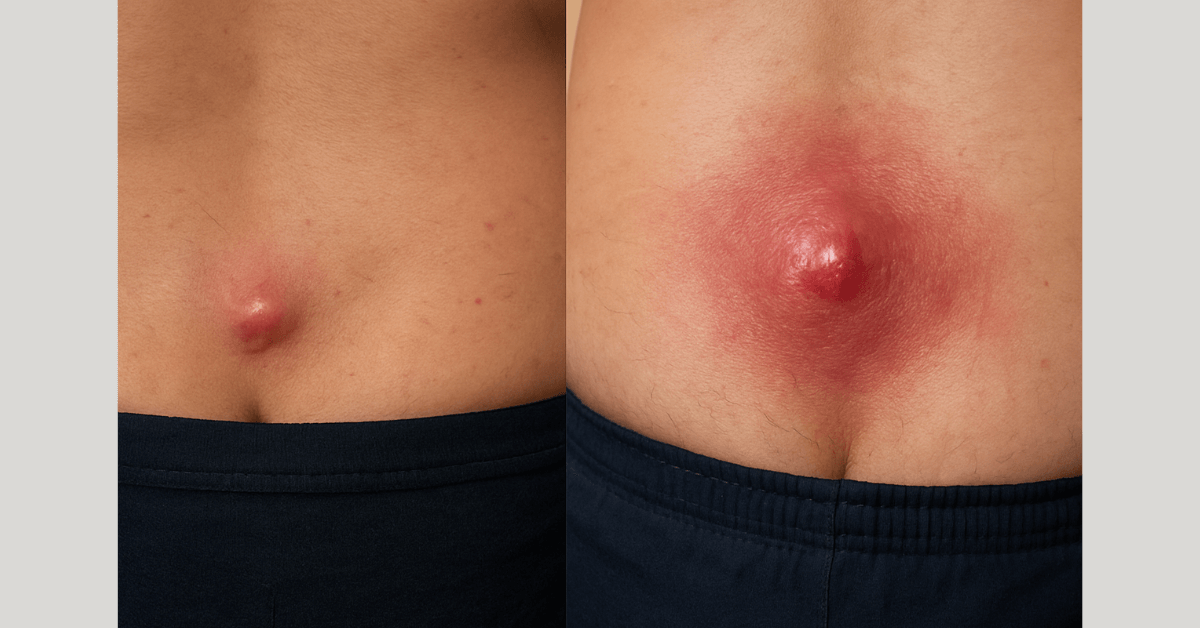Introduction to Perianal Fistulas in Women
Understanding perianal fistulas in women is important because these conditions present challenges that differ from those in men. A perianal fistula is a small tunnel that develops between the anal canal and the skin around the anus. Although perianal fistulas can affect people of all genders, women often face unique symptoms and complications due to differences in anatomy and reproductive health.
At IBI Clinic, surgeons have the expertise to diagnose and treat these fistulas with advanced methods that promote healing and comfort. By learning the symptoms, causes, and treatment options, women can make informed decisions and seek help when needed.
Causes of Perianal Fistulas
To understand perianal fistulas in women, it is helpful to look at common causes.
- Infection in anal glands: The most frequent cause is infection of the anal glands that results in an abscess. When the abscess drains, it may leave behind a tunnel.
- Inflammatory bowel disease: Crohn’s disease is strongly linked to fistula formation because of chronic inflammation.
- Trauma or injury: Surgical procedures, childbirth injuries, or trauma around the anal region can increase risk.
- Other medical conditions: Tuberculosis and certain cancers may also rarely cause fistulas.
These causes highlight why accurate diagnosis is critical for women experiencing recurring anal pain or drainage.
Symptoms in Women
Symptoms of perianal fistulas in women often overlap with other anal conditions, but several unique factors may make them harder to recognize.
- Persistent anal pain: Pain that worsens during bowel movements or prolonged sitting.
- Drainage near the anus: Pus or blood may leak from a small opening near the anus.
- Swelling or redness: Tender lumps may form around the anal area.
- Recurring abscesses: Women may notice repeated abscess formation.
- Incontinence concerns: Because of the proximity to reproductive organs and pelvic floor differences, women may face a higher risk of continence issues if fistulas are not treated correctly.
Since these symptoms mimic other conditions like hemorrhoids, fissures, or infections, it is vital to seek expert evaluation at IBI Clinic.
Unique Considerations in Women
When addressing perianal fistulas in women, doctors must take into account specific considerations:
- Childbirth effects: Vaginal delivery can weaken the pelvic floor and increase the likelihood of perianal complications.
- Gynecological proximity: The closeness of the anal canal to the vagina raises concerns about fistula tracts extending toward the reproductive system.
- Impact on quality of life: Women often experience embarrassment, social anxiety, and sexual health concerns due to ongoing drainage and discomfort.
- Treatment risks: Surgeons must protect sphincter function to avoid complications with continence.
These unique aspects emphasize the need for personalized care from skilled surgeons.
Diagnosis of Perianal Fistulas
Doctors diagnose perianal fistulas in women using several steps.
- Physical exam: A careful exam helps identify external openings and areas of tenderness.
- Imaging tests: MRI or endoanal ultrasound provides detailed information about the fistula’s tract.
- Medical history: Reviewing past conditions such as Crohn’s disease or childbirth injuries helps guide the evaluation.
IBI Clinic offers comprehensive diagnosis that combines modern imaging with the experience of board-certified surgeons.
Treatment of Perianal Fistulas
Effective treatment depends on the complexity of the fistula. The goal is to remove infection, close the tract, and protect continence.
- Fistulotomy: The surgeon opens the fistula tract to allow healing from the inside out. This is effective for simple fistulas.
- Seton placement: A surgical thread is placed in the fistula to keep it open and allow drainage while reducing risk to the sphincter muscle.
- LIFT procedure: The ligation of the intersphincteric fistula tract procedure aims to close the fistula while protecting anal muscles.
- FiLaC® laser treatment: A minimally invasive method that uses a laser probe to close the fistula. This option offers faster recovery and less discomfort.
At IBI Clinic, surgeons carefully choose the treatment that balances healing with preserving normal function.
Fistula Causes
Exploring fistula causes further helps women understand risk factors. Women with Crohn’s disease, repeated anal infections, or a history of pelvic surgeries are more likely to develop fistulas. Recognizing these risks early helps in prevention and timely treatment.
Fistula Symptoms
Fistula symptoms often include pain, swelling, pus drainage, or bleeding. Women may also notice skin irritation and hygiene challenges due to continuous leakage. Identifying these symptoms early and consulting a specialist reduces the chances of complications.
Fistula Treatment
Fistula treatment requires medical intervention. Unlike minor skin infections that may resolve with home care, fistulas rarely heal on their own. At IBI Clinic, board-certified surgeons use advanced surgical options that aim for complete healing while preserving anal function.
Female Anal Health
Female anal health is an important aspect of overall wellness. Women should not ignore recurring anal pain, drainage, or abscesses. Regular checkups and open conversations with healthcare providers can help detect fistulas early and prevent chronic issues.
Prevention Tips for Women
Although not all fistulas can be prevented, women can take steps to lower their risks.
- Practice good hygiene in the anal area.
- Manage chronic conditions like Crohn’s disease with regular medical care.
- Seek treatment for abscesses promptly to prevent fistula formation.
- Avoid prolonged sitting without breaks to reduce anal pressure.
- Discuss anal or pelvic discomfort openly with healthcare providers.
These habits support better anal and overall health.
Why Choose IBI Clinic
IBI Clinic provides specialized care for perianal fistulas in women. With expeet surgeons and access to advanced treatments such as FiLaC® and LIFT procedures, the clinic focuses on delivering personalized care that protects quality of life. Patients receive compassionate treatment tailored to their needs, ensuring long-term relief and comfort.
Conclusion
Perianal fistulas in women present unique challenges that require accurate diagnosis and expert care. While symptoms may appear similar to other anal conditions, women face additional concerns related to childbirth, pelvic anatomy, and continence. Treatment options range from traditional surgery to advanced laser therapy, all with the goal of healing while protecting function.
By seeking care at IBI Clinic, women gain access to skilled surgeons who understand these complexities and deliver effective solutions. Early intervention not only relieves symptoms but also improves quality of life.



